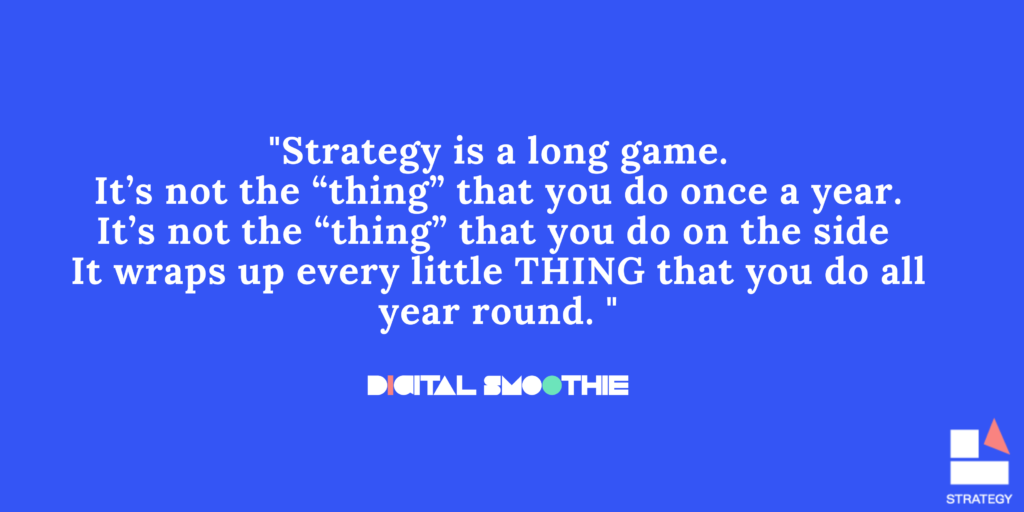The importance of a clearly defined business strategy
The importance of a clearly defined AND executable business strategy has been the subject of many textbooks and university courses.
What follows strategy setting is where many companies fall short. Strategy execution and culture alignment are just a few areas where companies fail.
The success rate of strategy execution is incredibly low because good strategy is hard to execute, specifically, fail percentages found in scientific studies range from as low as 7 % to as high as 90 %, with an average of about 50%. As reported in this Forbes article “20 Reasons why strategy execution fails”
Commonly heard strategy statements over the years:
“There’s just too much on to allocate time for strategy”
“We are too busy to stop and talk strategy”
“Our team doesn’t need a strategy “
“Everything is too volatile to be able to set strategy beyond 3 months”
“Here’s a task list – That’s our strategy”
Do these statements sound familiar?
It is easy to see why this can be the case. The day-to-day noise can drown out the time and space required for teams to come together and rise above the tactical to clearly articulate their goals. If your team is barely keeping their heads above water than it’s more difficult to be strategic.
A few things to remember about strategy
Strategy setting requires focus, clarity, energised and motivated approach for the future.
Strategy setting is NOT the answer to all your problems. Many companies are great at strategy setting AND terrible at strategy execution.

Over the years of working with different clients, our observations have been that most challenges experienced by teams originate from lack of a clearly defined strategy AND an accompanying clear and measurable execution plan.
The reverse is also true, most successes , can be directly attributed to leaders and teams taking time to define their strategy and execution plans.
Symptoms of failed strategy executions
Symptom:
The website has crashed due to an unexpected surge in traffic
Questions:
Was the website built on the right technology stack?
Were the overall growth goals of the company in mind when selecting technology stack?
Were supporting marketing & sales plans clearly communicated and shared with the relevant parties?
Symptom:
You have spent millions on a shiny piece of technology that on paper will save your company a tonne of money in improved efficiencies – but the uptake is lack lustre if not dismal.
Questions:
- Have you connected this technology to the purpose and why of your organisation?
- Have you consulted and taken into consideration ALL of your stakeholder’s opinions, emotions and how they learn?
- Are they ready to make a change?
- Have you communicated enough?
Symptom:
Your team has just launched an amazing SaaS Platform that you are certain your clients will love, however, your clients are hesitant to jump on.
Questions:
- Have you taken the time to speak to your clients to understand their pain points and map out their user journeys?
- Have you been brave enough to say NO to some bells and whistles that just don’t fit into your product strategy or overall roadmap?
What are the benefits of a clearly defined strategy?
A clearly defined strategy is the Compass that points your team to the direction that you want the organisation to be heading. The strategy execution plan is the Map of how you will get there. Without them, you risk having different teams heading to different places – misusing company resources and diluting results.

Having a clearly defined AND executable business strategy is important for a number of reasons. Here are a few:
- It helps you define & clarify your business goals and objectives. This can include things like increasing revenue, expanding into new markets, or improving your product or service offering.
- It helps you prioritise & allocate resources effectively. This includes time, money, and personnel, in a way that is most likely to help you achieve your business goals.
- It helps you make better decisions. A business strategy provides a framework for making decisions about your business. It helps you evaluate different options and choose the ones that are most likely to support your long-term goals.
- It helps you respond to changes in your industry or market. A solid business strategy can help you anticipate and respond to changes in your industry or market, such as new competition or changes in consumer preferences. This can help you remain competitive and adapt to changing circumstances.
How is Strategy & Culture related?
Business strategy and culture are deeply intertwined and have a strong impact on each. The culture of an organisation can have a significant impact on its ability to execute its business strategy. Culture refers to the values, beliefs, and behaviours that are shared by the people within an organisation. It is the “personality” of the organisation, and it shapes how things are done within the organisation.
Culture informs and shapes the strategy, while strategy drives the culture.
A positive and aligned culture can support the execution of a business strategy by:
- Providing a common set of values and beliefs that guide decision-making and behaviour.
- Creating a sense of shared purpose and commitment to the organisation’s goals.
- Encouraging open communication, collaboration, and innovation.
- Fostering a sense of trust and respect among employees.
On the other hand, a culture that is misaligned with the business strategy can hinder its execution. For example, if the business strategy emphasises customer service but the culture is one of apathy or lack of accountability, it is unlikely that the strategy will be successfully implemented.
In summary, business strategy and culture are closely tied together because a positive and aligned culture can support the execution of a business strategy, while a misaligned culture can hinder it.
If you want to know more about the perils of bad culture – Read my blog “So your company culture is Toxic? Just put a sock in it.”
More to come..
Over the next few weeks we will be publishing content written by various members of the very talented Digital Smoothie team, explaining the importance of a clearly defined business strategy and how it plays a role in all areas of your company’s future – from content to website design to name a few.









Leave a Reply